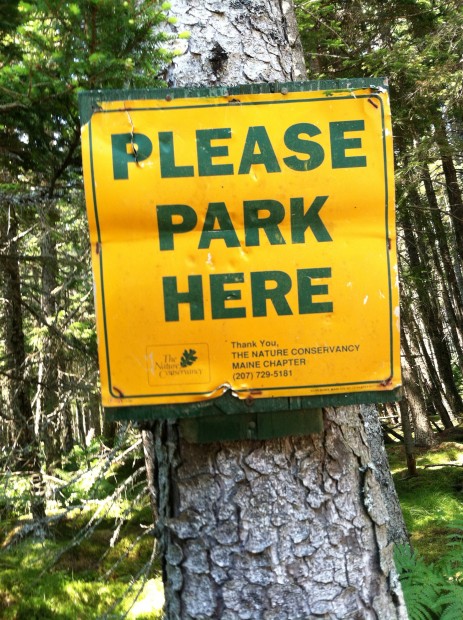Bad Advice Wednesday: Don’t Know Where You’re Going
categories: Bad Advice / Cocktail Hour
1 comment

So many people ask if I outline, if I know where I’m going when I start a story, a novel, an essay. The answer is an inefficient but satisfying: No. I’m not even E.L. Doctorow trusting that he’ll get where he’s going even though it’s night and his headlights only illuminate a small part of the way. Because that implies he knows where he’s going, that it’s only the way in question. I’m more like getting in the car blindfolded and seeing how far I can go before I crash. Usually, the crash is more interesting than whatever magnificence I’d planned.
There’s an old Chinese riff that goes like this: If you don’t know where you’re going, get there by a road you don’t know. Lewis Carroll famously modified it to: “If you don’t know where you are going, any road will get you there.” This approach to making art can make new practitioners uncomfortable. But it’s knowing too much that causes all the problems.
Do I outline? Only when I’m finished. Yup, all done. Then I draw up what I’ve done, look for any missing chunks the outline is good at identifying. And often restructuring everything to get where I’ve gone. Which means not cutting and pasting so much as cutting and writing it all again.
If you’ve taught, you know that students don’t like to change anything they’ve made, at least not very much. To get a groan, suggest cutting a few pages! Back when I taught, I’d assign throwaway drafts. That is, give an assignment, collect the papers (or perhaps in your case sculptures, or equations, or whatever it is you’re teaching), then wait a few days, till one of your best go-getters says, “Are you handing our papers back?”
I always wanted to teach college outdoors where we could have a fire–I’ve done it at conferences, just build a fire and gather around it and talk writing. But a wastebasket does the trick. Anyway. The answer is: “Yes, I’ve got your papers.” And then elaborately pull them out (best if you’ve got your own notes all over them), pull them out and feed them to the flames one-by-one, real flames or metaphorical, doesn’t matter. It’s safe enough emotionally, of course, as kids have copies on their computers these days. But still, it’s way dramatic: folks, let go of that shit! And then have them–right there under the stars, whether real or metaphorical–have them write whatever they think they’ve written over again, from memory. Mostly they will write something different, and nearly always better. Seldom do they ever refer to their original drafts again.
Do I outline? Yes, for certain types of nonfiction, for journalism, where the story is in front of you and you are looking for structure primarily. No for most anything else. For anything else, especially fiction, especially memoir, especially poetry, especially actually everything, I just start writing. And keep writing. That’s the road I don’t know. When the road has taken me someplace, usually a pretty arbitrary someplace, but with a view, I go back where I started and have a look at my trail. Often, cutting through all the twists and turns of the original route, and now that I know more about where I’ve been, a straighter road announces itself. All those pages I have to toss ? Like so many leaves of lettuce to the rabbits of revision. I toss ’em, burn ’em, delete ’em, file ’em, feed ’em (pick your image), never remorseful, and still in love with every word and every fit of punctuation: without them, I wouldn’t have gotten where I got. With them, however, I’m not going to get where I’m going.
One my favorite editing techniques is to look for the place the story heats up, and then cut everything before, sometimes an entire draft except the last paragraph. You almost never need that stuff! And then forward from there.
I’m thinking of Richard Hugo’s great craft book, “The Triggering Town.” Basically, a Richard Hugo “Triggering Town” is the road you don’t know. His method for poetry was to sit down every single day without preconceptions, and just pick a town. Any town would do. Worcester, Mass. Ten Sleep, Wyoming. Mexico City, Mexico. And starting there, just get writing. Eventually, sentence by sentence, paragraph by paragraph, page by page, you’re going to get to the issue at hand, or to the heart of a story or idea or image, that place where your road is going and toward which your town got you started. At that point, you cut the triggering town and the first waves of associations, those sentences and stanzas that aren’t where you’re going but got you there. Ruthlessly you cut them. Leave the destination. Which may just be your next starting point.
That’s what I’ve got for today: Get lost before you’re found.
Bill Roorbach is still trying to get his old house right 20 years later, even as he realizes he’s just passing through…


Love this! I’m “revising,” but really rewriting basically everything in my memoir (with 20,000 words cut so far, thankfully), now that I know where I’m going.